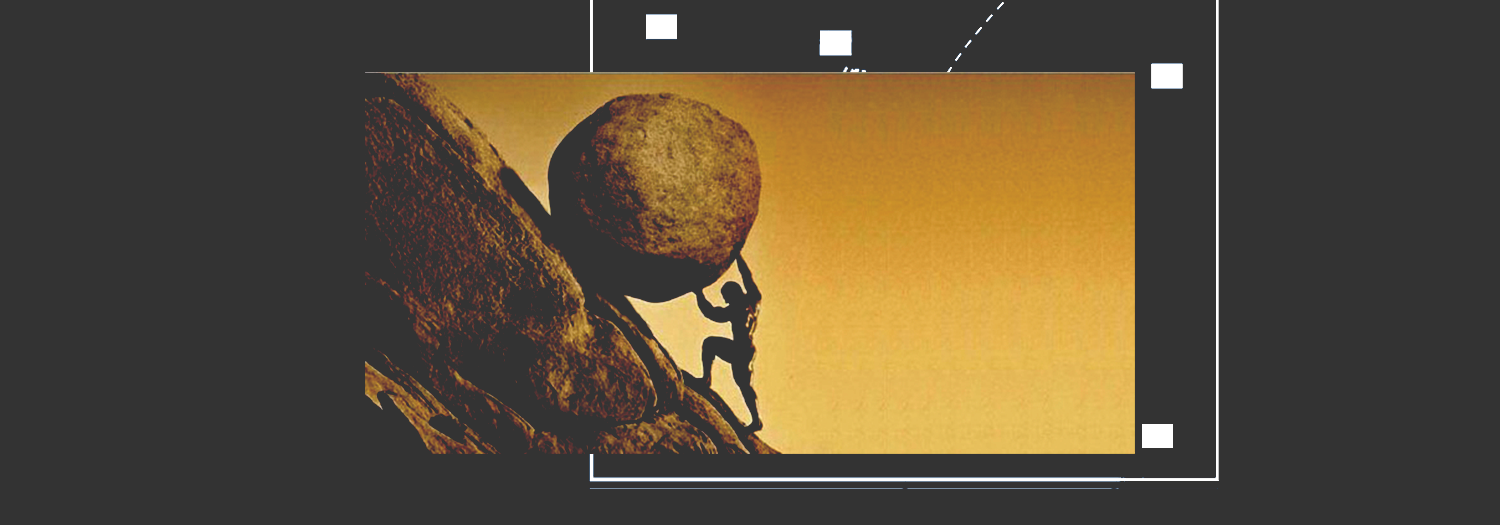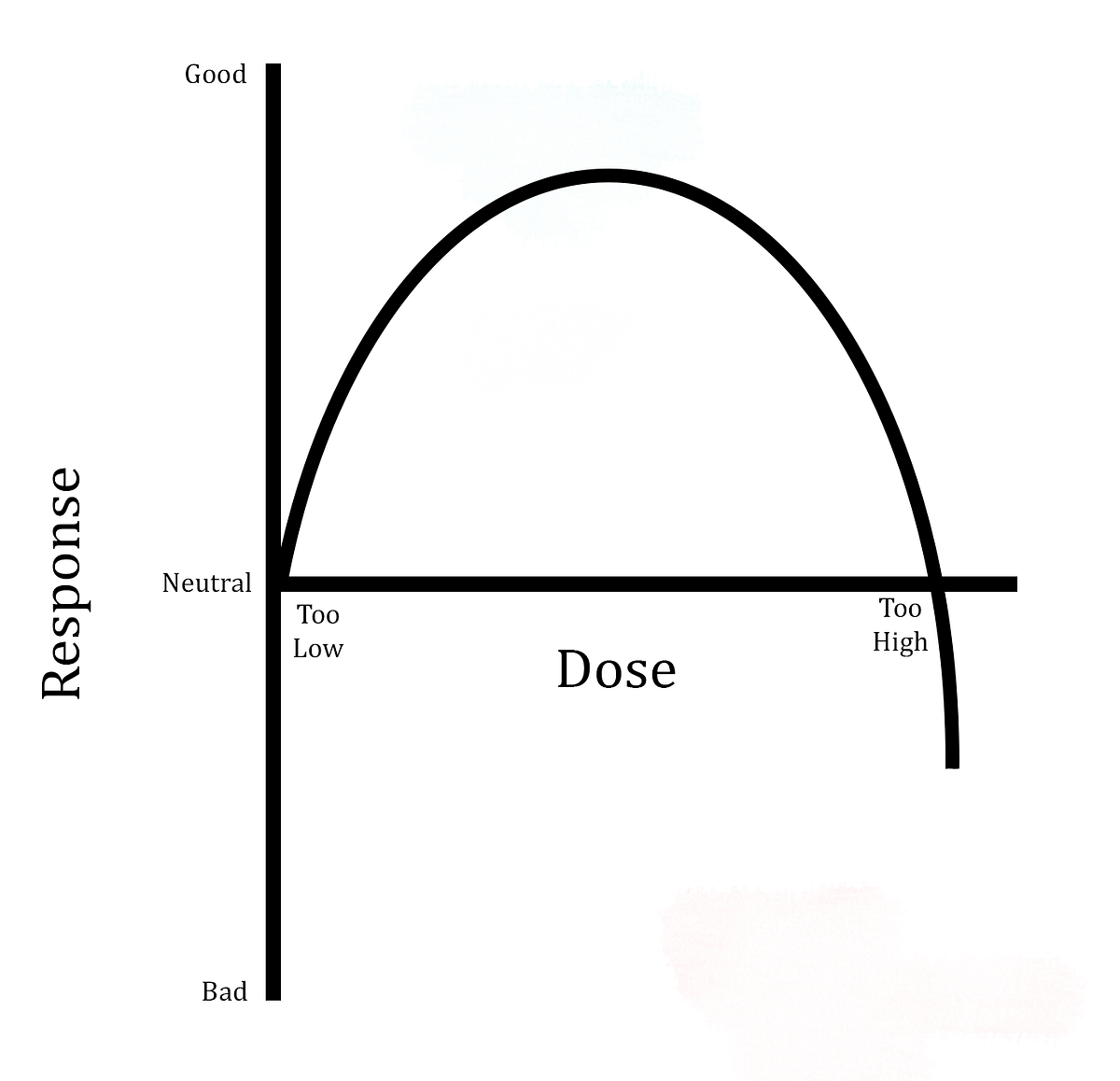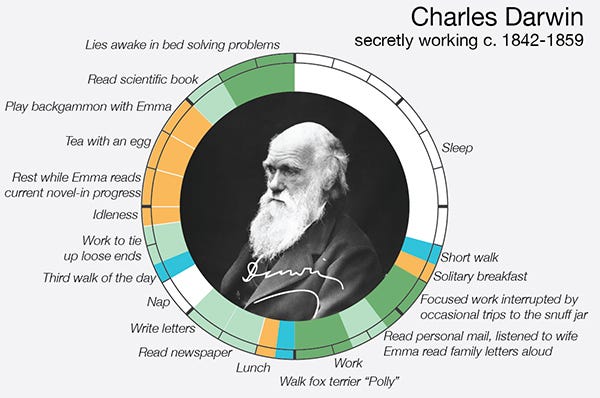The Only 3 Ways to be More Productive

Whenever you feel like you’re not getting enough done, you probably always turn to the same solution: working harder. Yet, you’ve probably heard the saying that you should “work smarter, not harder” which sounds great, but how do you actually work smarter?
Why Working Harder isn’t the Answer
The reason most people work harder is that it’s the most visible form of productivity.
It’s extremely hard to connect your input, the time you spend working, with the output, the finished project.
Were the three hours I spent writing that report this morning productive? Or was that really a distraction and I should have been doing something else?
Is reading this book helping me learn a new skill or is it just a waste of time?
In most cases, it’s hard to know, especially if you work as a part of a large team. This means it’s very difficult for your manager to know who is generating the results and who isn’t.
In reality, working more hours is often just a way to prove to others, rather than yourself, that you’re “getting things done.” You’re worried about people thinking you’re lazy and, if you’re like me, you’re insecure about how important the work you are doing really is.
The Dose-Response Theory of Working Harder
When prescribing some medicine, doctors know that there is a dose-response curve.
Too little of the medicine and you aren’t getting the full benefit, but too much and you could be damaging the patient.

If you don’t have enough Iron in your blood, taking the right amount of an iron supplement can be helpful, but taking too much can be poisonous.
The same is true of many other things. Working out for a few hours per week is probably very beneficial. Working out for sixty hours per week can be extremely damaging to your long-term health. It is simply too high of a dose.
The same relationship is true with working harder. You need some hard work to be productive, just like you need some exercise to be healthy, but there is such a thing as too much of a good thing.
The relationship between how much work you are putting in and your actual productivity over the course of a typical work week looks like this:

Because it takes a while to get into your peak productive state, the first few hours of the work week typically don’t go anywhere. You sit down at your computer, fidget a little, check email (but don’t respond). Then, you start getting into the flow, loading up all the mental RAM and really getting things done.
Once you get past a certain number of hours per week (in my experience, peak productivity is around 10–30 hours per week or roughly 2–6 hours per day depending on the person and circumstance), your productivity starts to drop off.
This is corroborated by research from Anders Ericcson, whose research was popularized as the 10,000-hour rule by Malcolm Gladwell’s book Outliers.
If you study high performers across industries (music, painting, writing, entrepreneurship, math, engineering) and across time periods (1500 to present), no one consistently (for months at a time) sustained in excess of twenty hours per week of high-level output, most did far less.
- Charles Darwin engaged in “focused work with occasional trips to the snuff jar” for three hours each morning.
- Tchaikovsky did two hours of composition from 10am to noon with an occasional afternoon work session when he was feeling particularly energized.
Despite being two of the greatest contributors in the history of their respective fields, working an enormous number of hours obviously wasn’t their secret.
After two to four hours a day or 10 to 20 hours per week, they crossed a threshold where they couldn’t do any more high-level creative work but still had the energy to do managerial and administrative tasks.
Darwin, for example, spent his afternoons reading, writing letters, and tying up loose ends.

At some point though, you start to be negatively productive. I learned this writing my first book when I had the attitude that I would “push through.” I found that past a certain point, usually two hours of writing for the day, not only were the words I put down not good, they were actively hurting the writing. Putting in an extra hour was not just an extra hour of work that day, it created another hour of work the next day when I had to go in and remove all the sections that I had ruined trying to “work harder”
So, what are some ways that top performers work smarter, not harder?
How to Work Smarter, Not Harder
1. Prioritize Tasks by Energy Level
One way to work smarter, not harder is to plan your days and weeks around your natural rhythms. If you’re a morning person, don’t leave the most important work for the afternoon and if you’re a night owl, don’t feel guilty about sleeping later and staying up at night to get your work done.
I started to break my to-do lists into three sections and sort it by energy levels:
- High Energy — This is my “maker” work that requires my highest level creative energy (the morning for me)
- Medium Energy — This is my “manager” work when I try to schedule meetings, answer email and do other reactive work.
- Low Energy — This is my “administrative” work like paying bills, reviewing reports, and booking travel.
I typically do about 10–15 hours of high-level work each week, another 10–15 of medium energy work, and another 10–15 of low energy, administrative work.

At that point, I’m past the negative productivity range.
Preliminary research from Stanford suggests that the point where you pass into negative productivity is somewhere between 30–50 hours depending on your personal genetic makeup and external conditions.
2. Learn New Skills
Another way to work smarter is to develop new skills that let you accomplish more in less time.
Consuming information lets you learn from the mistakes of others more quickly and inexpensively than doing it yourself. It took over a hundred years for people to learn how to market products effectively but you can spend a month reading the five most important books in the field and learn 80% of the entire field.
I’ve met plenty of people who have “five years of marketing experience” that can’t do their job as well as someone who has worked in marketing for six months but read the fundamental books of the field.
However, if you want to work smarter not harder, it’s not enough just to read the books. Reading books gives you explicit knowledge, the knowledge that can be readily articulated and verbalized. It does not give you tacit knowledge, the kind of knowledge that can’t be written down or verbalized.
While you can read books about playing the guitar to get explicit knowledge, you’ll never learn how to be a productive guitar player until you develop tacit knowledge through actually practicing the guitar.
By combining the two — reading books and studying your field and actually practicing it, you can gain the type of tacit knowledge that will make you more effective so that you can get more done in less time.
Spending just ten minutes a day reading a book and then applying what you learn at work is a really effective way to work smarter.
3. Use Popular Productivity Hacks
Another way to be more effective is to use “productivity hacks,” different tricks and hacks that can help make you more effective.
Here are some of the productivity hacks I’ve found most useful:
- Find an Accountability Buddy — Use online tools like Focusmate or in-person work colleagues and use them to help keep you accountable so you don’t procrastinate.
- Create a morning ritual to standardize the first thirty minutes to an hour of your day. Meditate as a part of it.
- Use the Pomodoro Technique to break your work into chunks. The Pomodoro technique has been proven to reduce the impact of internal and external interruptions to focus.
- At the end of the day or week, make a list of your least valuable tasks and ask: “Is it profitable?” If not, stop doing it. If yes, can you delegate it?
- Make a “Not To Do List” which lists all the things you frequently waste time on. (For example, answering unknown numbers, responding to emails that should be archived, saying yes to meetings without a clearly defined purpose and agenda).
- Use platforms like Upwork and Fancy Hands to outsource tasks which can be done for less than your personal hourly rate.
- Read and implement David Allen’s Getting Things Done system for task management.
- Batching similar tasks into one chunk. For example, cook everything for the week on Sunday afternoon and save it for reheating or pay all your bills on the second and fourth Fridays of the month.
- Learn keyboard shortcuts for applications you commonly use. (The Gmail Shortcuts take ~5 minutes to learn and will double the speed at which you go through email.)
4. Use Software and Automation
A fourth way to work smarter, not harder is to leverage software and automation. There are many tools available to knowledge workers today that can help them get more done by automating boring or repetitive tasks.
Here are some of my favourite software tools:
- Use Readwise.io to sync your Kindle highlights with Evernote so you can easily search through all your book notes.
- Save articles to Instapaper or Pocket and read them on your phone instead of leaving twenty tabs open and slowing down your computer.
- Use Calendly to schedule meetings so you don’t have to send emails back and forth trying to figure out a time that works for both of you.
- Use Lastpass to store all your saved passwords so you don’t forget them (or resort to using insecure passwords like your dog’s birthday)
- Use The Email Game to gamify your email so you get through it faster.
- Use Filters in your email to send non-essential emails like newsletters or shopping emails to a separate folder.
- Use jumpcut to save a list of things you have copied.
- Speed up your cursor speed in your settings so you can move it around your computer faster.
- Use a text expander to save commonly used phrases (like your address or commonly typed URLs). (One of the most frequent ones I use is “,chat” which turns into “Let me know when a convenient time for you to chat is. If you prefer, my calendar availability is athttps://calendly.com/yourname.”)
- Use Freedom.to to block yourself from distracting websites during your maker time.
- Use Rescue Time to measure how much time you are spending on different sites.
- Use Evernote
- Use a task manager like OmniFocus, Todoist or Things.
All these things help. I use all of them and am more productive as a result. However, they can also be a dangerous distraction by making you feel like you’re being more productive when you aren’t.
The real truth about how to work smart, not harder is that working smarter requires one special ingredient: courage.

5. Courage: The Real Way to Work Smarter, not Harder
“Use courage and wisdom, not labor, to make money.” — Nassim Taleb
Imagine you want to become a professional hockey player. If you want to be good at hockey, you need to be able to do three things.
- You need to know how to skate.
- You need to know where to skate to (where is the puck going?)
- You have to be willing to get hit.
All the techniques we’ve looked at so far have been about learning to skate better. Learning to skate better is important if you’re going to be a good hockey player, but it’s only helpful if you also know where to skate and if you’re willing to get hit.
The popular perception is that people who are successful (whatever your definition of success) got there by the methods discussed above. I have no doubt many successful people use all those techniques and many others, though many do not.
I know and have studied many people who work hard and work smart but seem to get much less done than they are capable of. What gives?
One part of it is luck. Sometimes you just happen to be standing right where the puck is going. While there are things you can do to increase your chance of getting lucky, there is another component that you have more control over.
As I’ve continued to study successful people and meet some people that I would consider successful, the biggest common factor in their success iscourage.
The courage to skate to where the puck is going when everyone else is skating to where the puck is. And, the courage to get hit.
I believe one of the main reasons we work too hard is that we are using that hard work to make up for a lack of courage.
When I was in 8th grade, I had a crush on Lindsay. I spent months going around and talking to all her friends and seeing what they think she’ll say, then composing a letter, then throwing the letter away, then regretting throwing the letter away, etc.
What I should have done was just walk up to her and asked her on a date. It would have taken me two minutes and she might have said yes and she might have said no and either way it would have been done in two minutes (and, the fact that I had the courage to just ask her probably would have made it more likely she said yes!).
We all do this in our work to:
Instead of firing the team member who is dragging down the project, we work harder to make up for them. Firing them takes courage. It is emotional work.
Instead of asking a coworker upfront why we don’t work well together and having an honest conversation about it, we gossip behind their backs.
Instead of sharing a new idea, we keep it to ourselves because we’re afraid what people will think.
There is no one way to apply more courage to your work.
Maybe, for you, courage is choosing to work less because we are confident in our own productivity time. Even if that means having a 5-hour work day or 20 hour work week.
Maybe it’s having a difficult conversation with someone at work.
But, for all of us, being courageous is the real hard work we need to do, rather than just “clocking in more time.”
